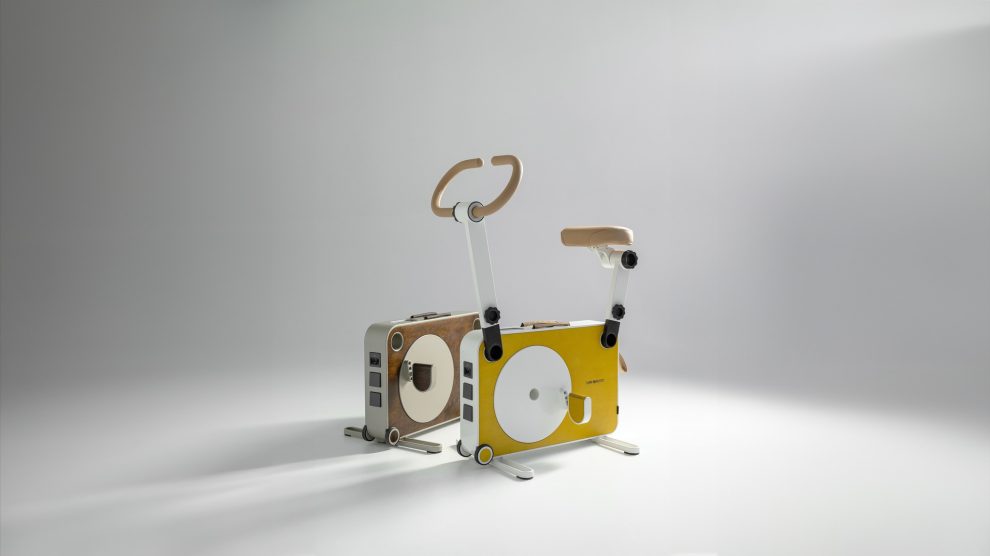By incentivising physical activity, Tukas EV says its HR Bank encourages customers to engage in fitness routines that simultaneously generate energy.
Amidst a world grappling with the growing concerns of the escalating impact of climate change, energy efficiency and the negative effects of widespread sedentary lifestyles, innovative solutions addressing these issues are an urgent necessity.
HR Bank, created by the Lithuanian firm Tukas EV, is a sustainable exercise bike and energy storage device that seamlessly intertwines fitness and energy conservation, offering a dual solution to the challenges of our time.
- The Estonian cleantech start-up slashing carbon emissions
- Knit one, purl one
- How to design a future-proof education system for the emerging Europe region?
By harnessing the power generated during workouts and converting it into clean energy, HR Bank not only offers a remedy to the prevalent sedentary lifestyle but also serves as a tangible contribution to the global effort towards a more sustainable and energy-conscious world.
A waste of energy
In an era where both environmental sustainability and personal well-being are at the forefront of global consciousness, the growing concern over energy efficiency has taken centre stage.
Startling statistics reveal that over 48 per cent of Europeans do not engage in health-enhancing physical activity, contributing not only to the region’s health crisis marked by the rise of chronic diseases but also exacerbating energy consumption patterns.
Simultaneously, a staggering 66 per cent of the primary energy used to generate electricity is lost before it reaches the end-user, highlighting a systemic inefficiency in the energy distribution process. Furthermore, approximately 35 per cent of home energy consumption is wasted energy, underscoring the urgency for solutions that address both the health and environmental aspects of our daily lives.
Aurelijus Jaškulis, COO of Tukas EV, believes that a significant part of our daily actions and physical functions are a waste of energy.
“Most of the time we use energy to maintain our vital functions, but just as often we waste it unnecessarily,” he says.
“For example, when we work in a sedentary job, in front of a PC, our physical energy is not being used in a purposeful way, which is where the solutions offered by HR Bank can help. Conversion of the body’s excess energy into electricity benefits the body, as well as significantly contributes to our households energy needs.”
Versatile applications
By incentivising physical activity through its unique banking model, HR Bank encourages customers to engage in fitness routines that simultaneously generate energy, fostering a symbiotic relationship between personal health and environmental sustainability.
Furthermore, the integration of technologies like HR Bank into homes holds transformative implications for future energy consumption patterns, presenting a paradigm shift in how individuals interact with and contribute to the power grid.
Jaškulis says that human-generated energy is only one way of charging the HR Bank.
Other and more efficient ways are wind turbines, solar panels, car batteries or the grid. However, the energy generated by the human body will work in conditions where there is no other source of electricity.
”Each person will experience the economic benefits of the HR Bank differently, depending on how it is used, where they live, where they can charge it, and what they need,” he says.
“Someone will build a zero emission home and power it with an HR Bank. Or maybe a person will have a solar panel (portable, stationary or other) on their balcony and will connect their HR Bank in a metropolitan apartment, and will be independent from the grid. In this way, HR Bank can solve individual experiences and situations.”
Unlike many news and information platforms, Emerging Europe is free to read, and always will be. There is no paywall here. We are independent, not affiliated with nor representing any political party or business organisation. We want the very best for emerging Europe, nothing more, nothing less. Your support will help us continue to spread the word about this amazing region.
You can contribute here. Thank you.


